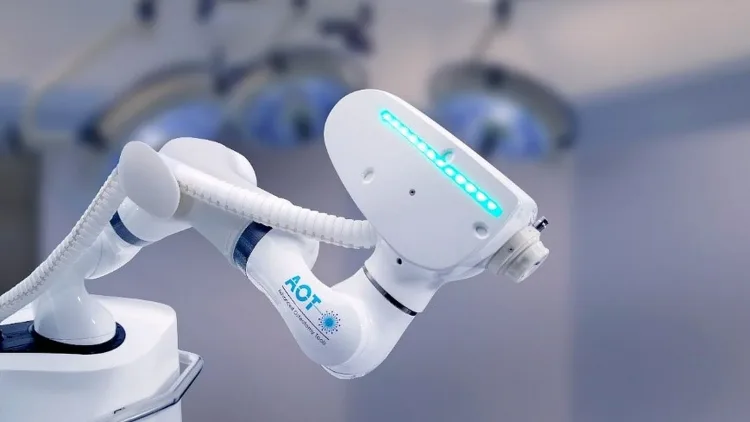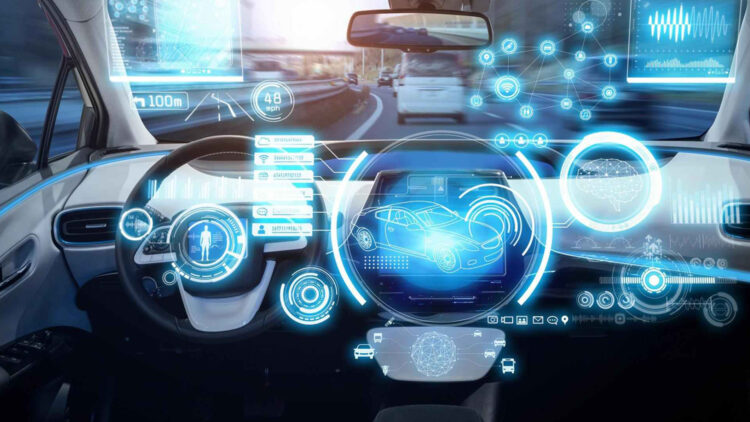In any industry over the last few hundred years, there’s the ability to pinpoint places in time where innovation surpassed expectation. These shifts, whether welcome or not, have forever redefined how the world has perceived something.
There’s no denying that the surge of automation advancements has seen some rather dramatic shifts in the automotive industry. The gap between those who have embraced and utilized these innovations, and those who have not, is widening every day.
A true mark of a revolutionary advancement is how quickly the world accepts it as the new normal. And when it comes to AI advancements or fleet IoT automation platform (ridecell.com ) technologies, their quality, speed, and agility have become the new gold standard in the automobile industry.
One of the world’s biggest modern pinpoint moments for an industry shift has happened, and while it may not always seem to be the case, we are in the middle of this exciting moment in time.
To celebrate this, here are 4 ways that automation is revolutionizing the automotive industry.
1. Collaborating with Robots

Operating under the nickname of ‘Cobots’, collaborative robots have become one of the most innovative tools in automotive manufacturing. These robots can be used to produce automotive parts, build entire vehicles, construct production lines, or even create more collaborative robots.
Not only do Cobots improve precision and overall safety in the workplace, but they’re also the perfect solution for labor issues. Due to the speed and agility of the collaborative robots, automotive manufacturers are able to keep up with their production orders, meet quotas, and ensure that supply is in line with the global demand.
While the benefits of these advancements in the automotive industry are clear, we’ve only scratched the surface of what this kind of production ability can do to the economy as a whole. With the combination of work-focused robotics completing tasks alongside humans, there’s limitless potential for how much further this automation can take us in the future.
2. Artificial Intelligence: Driverless and Autonomous Vehicles

As possibly the best-known advancement in automation, the concept of the driverless vehicle has been discussed and debated for decades. Many were skeptical about it ever coming to fruition, but it has since become a very prominent reality that may forever change how we drive, deliver, transport, and commute.
For driverless cars, the artificial intelligence itself is based on digital mapping and learning. By storing a map that it makes of its surroundings through smart sensors and sonar technology, a driverless vehicle is able to calculate the best possible journey from its starting point to its destination. Once the map and journey are confirmed, the artificial intelligence will begin communicating with the vehicles’ steering, acceleration, and braking systems.
While some have commented on the potential for accidents and errors, AI technology is implemented through coding and programmed road safety protocols. With this coding, the vehicle is able to maneuver through traffic with ease, safely, and within acceptable speed limits.
Not only does this revolutionize the automotive industry, but it may just forever change how we transport groups of people, assist with emergencies and assist the disabled.
3. Cognitive Automation in Vehicles

If the idea of artificial intelligence and driverless cars has piqued your interest, then the innovations that are already being labeled as the next step in that cutting-edge industry shift may astonish you.
Cognitive Computing (or CC for short) introduces the concept of vehicle technology platforms that are founded in artificial intelligence. Nothing new there, but it takes that innovation one step further through machine learning and human language processing software.
Automation companies like BMW and IBM are pushing the boundaries of AI even further. While driverless vehicles may communicate effectively within a singular vehicle, vehicles with Cognitive Computing communicate with one another.
Cognitive automation will not only communicate with other vehicles, but it will develop and learn from the human responses associated with applying vehicle brakes in an accident and other similar reactions.
Through this integrated data and monitoring of human behavior, it’s estimated that CC will prevent many traffic accidents and save lives in the future.
4. Overall Workflow Management

The very fabric of fleet management itself has been reinvigorated through advancements in automation. By implementing these advancements, fleet IoT automation has provided the entire industry with the potential to harness these innovative technologies for greater security, and more finely tuned efficiency measures.
By unifying your data insights with your digital vehicle control, the daily manual processes of fleet management can be upgraded into simple, concise, and easy-to-monitor automated workflows.
Ridecell’s Fleet IoT Automation platform has been cultivated specifically for fleets. Through streamlined workflows, better safety, and innovative technologies, automated workflow management solutions are not only revolutionizing the automotive industry, but ensuring it’s on the path to continued success in the future.
The world needs to consider the best use of its resources, and as the world’s most intelligent mobility platform, Ridecell utilizes them to provide one seamless channel for workflows. Simple, sustainable, and future-focused, embracing the ability to control your fleet business at the touch of a button has revolutionized how fleet management works.
The entire landscape of the automobile industry has changed. While we observe with interest now, future generations will soon consider these incredible innovations to be part of their everyday lives.
Once a revolutionary method becomes commonplace, any business without them will appear to be dated and out of step with a fast-moving marketplace. Find your place in the future of automation by embracing these changes, and your business will find itself a leaner, faster, and productive part of this exciting time.
The post 4 Ways That Automation Is Revolutionizing The Automobile Industry appeared first on FotoLog.
from FotoLog https://ift.tt/38pFenh
via IFTTT



1 Comments
informative
ReplyDeleteair conditioner
refrigerators
refrigerators
mobile phone on installmet
refrigerators price in pakistan
installment
deep freezer
water dispensers
televisions
washing machine
furniture
installment
installment company in Pakistan